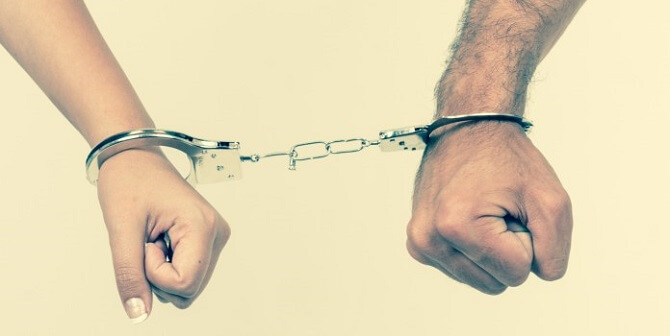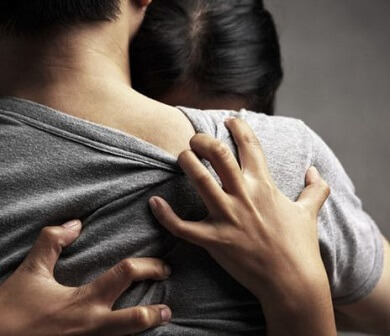Many people face the concept of co-dependence in relationships and don’t even know about it. A person who loses individuality is weak, vulnerable, and inclined to frequent aggressive states. The heart understands that he or she is dependent on another person, but the brain keeps saying that it should be so. Many couples don’t know how to get rid of co-dependence in a relationship. When a relationship doesn’t bring joy, you begin to think how to end it and become a free person again. It is not easy to recognize co-dependence in a relationship. Many confuse it with love and devotion and don’t listen to other people’s advice at all.

What is a co-dependent relationship?
At first glance, the idea of co-dependence sounds quite peaceful and friendly. You are a couple and you are interdependent. The fact is that interdependence and co-dependence are two different things. In the case of co-dependence or painful attachment to a partner, any relationship can very quickly turn into toxic.
So, what is a co-dependent relationship? A co-dependent relationship is an unhealthy relationship in which one of the partners puts the needs of the other above one’s own. Over time, a person becomes co-dependent and just can’t live without a partner. Co-dependent people don’t live their own lives and they practically don’t have their own dreams, aspirations, and goals. Also, the difficulty lies in the fact that it is quite difficult to end co-dependent relationships since each partner receives some recharge, which is vitally necessary for them. Such people can understand that they should break up but they can’t do this because of an unconscious attraction.
How it all begins
A sense of love, a close emotional connection with another person is the greatest gift, the source of strength, and the spiritual need of most men and women. In healthy relationships, it fills those who love with energy; it reveals their best qualities and helps their personal and spiritual growth. But co-dependence that arises in a relationship is experienced by a person as a serious condition, accompanied by pain, fears, doubts, and insecurities, taking away mental forces and causing a lot of negative emotions such as jealousy, anger, a sense of deception, loss of freedom and choice.
Most co-dependent unions develop according to the one scenario:
1. At the first stage, both partners feel a strong passion, the desire to be together all the time. They have a lot of sex, open up to each other, and feel “love”. As a relationship and dependencies develop, the dependent partner begins to gradually abandon his or her interests, making a relationship the main meaning of his/her life. Most often at the stage of quarrels, there is a breakup because of disappointment in the ideal image of a loved one.
2. The next stage reveals the love dependence. A co-dependent person feels terrible and begins to follow a partner everywhere and beg him or her to return. If he/she agrees, placing some conditions, a co-dependent relationship is created. From this moment, both of partners are co-dependent.
3. Then there is a cyclical repetition of the scenario. Co-dependent relationships don’t develop, partners don’t grow as individuals, they don’t set common goals, etc. They simply exist within this framework, not moving forward.
Signs of a co-dependent relationship
 There are a number of behavioral models that very clearly characterize such unhealthy relationships. Pay attention to them:
There are a number of behavioral models that very clearly characterize such unhealthy relationships. Pay attention to them:
- You only give but don’t receive anything in return and don’t consider this abnormal.
- You tend to avoid uncomfortable emotions or conflicts that often arise in healthy relationships.
- When a partner makes a mistake, you assume full responsibility.
- It’s incredibly difficult for one of you to say “no” to things that you don’t like, but you don’t want to hurt your partner’s feelings.
- You are constantly concerned and worried about what your partner wants. His or her values and opinions are more important to you than your own.
- You can’t identify your own values and just mirror the values of the partner.
- You are also not able to make your decisions without the partner.
- Your partner doesn’t appreciate you for what you did and do for him or her. And you feel guilty for this.
If at least half of these statements you answered are true about you, then you are a co-dependent person. You can be manipulated. And if such a person is not next to you, he or she will certainly appear because the manipulators “see their victims” very well.
Sometimes people live in a co-dependent marriage and don’t even think that they are co-dependent. They also don’t know how to get rid of this state. And many people, who understand that they are dependent on others, believe that this can’t be changed. As a result, they will spend their lives caring for others and never thinking about themselves. Because of this, their mental health often deteriorates over time. To destroy the habits that lead to the formation of such destructive relationships, a person can “heal” by realizing that he or she is an independent person with own values in life.
Reasons why you should end a co-dependent relationship
1. Your relationship becomes routine
You may think that this is normal. Maybe it is so. But if previously there was a passion and the desire to possess, then now there must be love, care, etc. If you understand that the meetings, in general, have ceased to bring any joy and satisfaction, this is the beginning of the “end”.
2. You feel disrespectful behavior
A while ago, you treated each other with respect. But now you can see more and more quarrels over trifles, for example, one of you raise a voice or show disrespect in another way. But still, you blame yourself. Never let a loved person behave disrespectfully. Disrespectful behavior can be not only a sign of the collapse of a relationship but also its cause. Some partners allow themselves too much and justify it by saying that “a close person will forgive everything.” But in practice, such things always remain in mind, forcing each of the partners to be in constant tension and expecting that it can happen again.
3. There are no sacrifices
You understand perfectly well that your partner may not like something in you. And in order to be with another person, you are ready to limit yourself in anything. This is an absolutely normal and natural process. And when relationships begin, both partners begin to sacrifice some piece of their lives, so that to feel comfortable and well with each other. But when one of the partners doesn’t respect the other one, he or she sacrifices less and less. And you try to ignore it and look for a reason in yourself.
4. You have low self-esteem
You are sure that you have nothing to offer a partner. You can be a victim for a long time, convinced that you are to blame for all conflicts and you will never find a better person. This is completely wrong. You should learn how to stop being co-dependent.
5. You have the desire to please a partner
You are ready for anything for the sake of the approval of your loved one. Only this helps you to at least slightly increase your self-esteem.
 6. You have fear of negative experiences
6. You have fear of negative experiences
You try to avoid any stress and mental trauma. That’s why you try to avoid serious conversations with a partner. A person prone to co-dependence will keep silent about his or her grievances to the very end. Unwillingness to talk about one’s feelings is expressed not only in loving relationships, but also in communicating with parents, friends, and colleagues.
7. You don’t feel support
You don’t know how to accept praise and compliments from a partner with a sense of joy and dignity. On the contrary, you may feel shame, restraint, and even feel a sense of guilt or the fact that you don’t deserve such an attitude towards oneself.
8. You feel inability (or great difficulty) to take everyday decisions without help of a partner
You actually don’t allow making these decisions for yourself. But taking someone else’s plan of life, you become unhappy because someone else’s choice usually doesn’t correspond to your own internal needs and abilities. Often you don’t realize your discrepancy. You simply feel unhappy, living the way you live. Doing so, you suppress negative emotions and these emotions often erupt in the form of anger and aggressiveness, leaving behind a feeling of guilt and shame.
Can a co-dependent relationship be saved?
How to fix a co-dependent relationship? Don’t even think about it! A co-dependent relationship has no potential for development and its future is usually predetermined – a breakup. Even if a co-dependent person manages to get rid of the “addiction”, it is very difficult to rebuild the existing relationship model since such relationship doesn’t satisfy any of the participants.
The difficulty of co-dependence is that a co-dependent partner often refuses to admit his/her addiction. In addition, to overcome it, it is necessary to finish a co-dependent relationship and go through a period of depression and a serious mental crisis. It is difficult to agree to it, even if a person understands that relationships destroy his or her life and psyche.
Nevertheless, it is possible and necessary to fight, because there are no psychic conditions (except for severe pathologies) that a person can’t overcome or, at least, weaken their influence on his or her life. If you feel that you are not able to cope with love addiction and get out of the co-dependent relationship by yourself, then seek help from a professional psychologist, help yourself to solve this difficult task. After liberation from co-dependence, a person begins to feel more strongly his or her identity and independence. Planning your life, you should know that the formation of relationships, in which dependent behavior will not manifest itself, must be built on acceptance and respect for the nature of a partner.
Wrapping it up
Co-dependence is duplicity in some sense and it is destructive for both co-dependent people and relationships as a whole. Learn how to stop being co-dependent in a relationship. Start giving yourself love, attention, and respect that you most need now. Achieve goals, fulfill dreams, engage in creativity, change the place of residence – do what will bring you joy. This will contribute to the development of an individuality that will “heal” a trauma. Make plans for your life and be happy!
Your Comment
Log In Or Sign Up
To Leave Your Comment